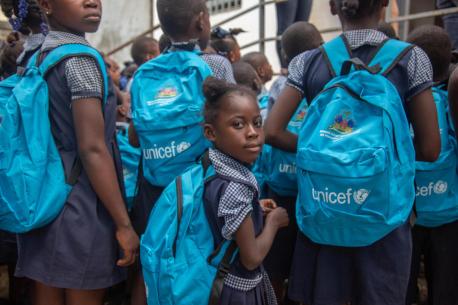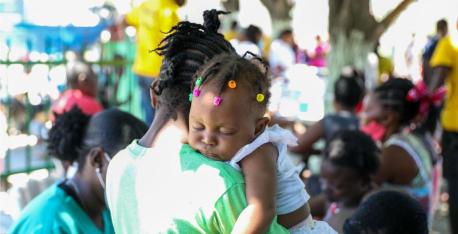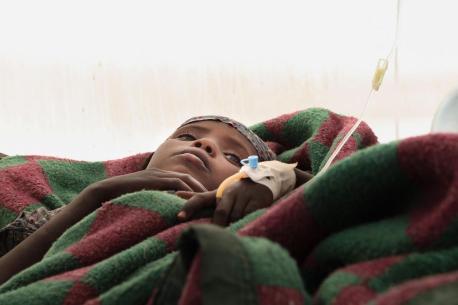
UNICEF-Supported Community Volunteers Help Families Hit Hard by Cholera in Zambia
Local case management teams link vulnerable families to the resources and services they need to stay healthy in the midst of Zambia's worst cholera outbreak in decades.
LUSAKA DISTRICT, ZAMBIA: Cholera is a preventable, easily treatable disease, but it can kill within hours if left untreated. Families with limited resources and poor access to WASH (water, sanitation and hygiene) services are always at greatest risk to cholera and its impacts. As Zambia continues to battle its worst outbreak in decades, UNICEF is working hand-in-hand with the Zambian government to aid families hit hard by cholera.
UNICEF is committed to supporting the most vulnerable and that's exactly what Community Welfare Assistance Committees (CWACs) are designed to do. CWACs are groups of volunteers who have joined forces with the Social Welfare Office in Zambia to provide one-on-one support to vulnerable families in their community.
Thanks to funding from the Central Emergency Response Fund (CERF), community case management has been strengthened just when it's needed most. CWAC volunteers work closely with families impacted by cholera in Matero, Lusaka district, identifying the assistance they might need and connecting them with vital resources.
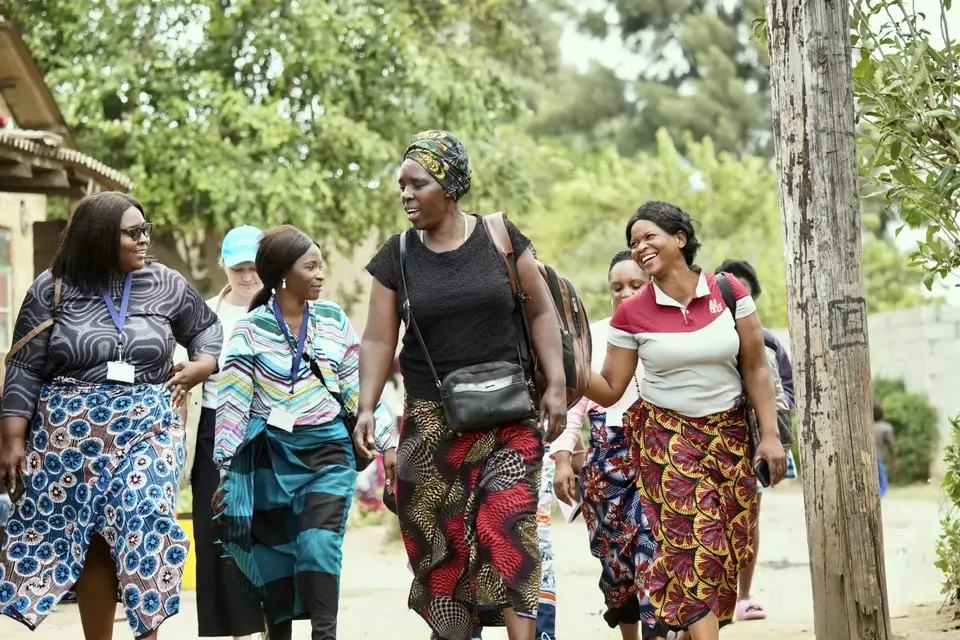
Community-level interventions build goodwill among neighbors
Mary and Martha are two of 120 volunteers who belong to the Matero CWAC group, an integral part of the social welfare community case management system. CWACs focus on identifying and referring vulnerable individuals and households to protection services, including access to in-kind support. Starting at a community level allows for people to feel connected to the volunteers, as they normally know each other, and this makes them feel comfortable sharing their experiences. Elizabeth, a recipient of support in George Compound, Matero, said, “I feel so relieved by Mary’s visits and really like having someone to talk to.”
Mary has found her true passion in volunteering in her community and has been volunteering with the CWACs for about five years. “My dream is to receive further support so I can do more in my community to help others,” she said.
Martha began volunteering with the CWACs in 2021. She says she loves helping vulnerable community members like those in George Compound. Now people recognize Martha as being part of the community-based social welfare system and they continuously reach out to her for support.
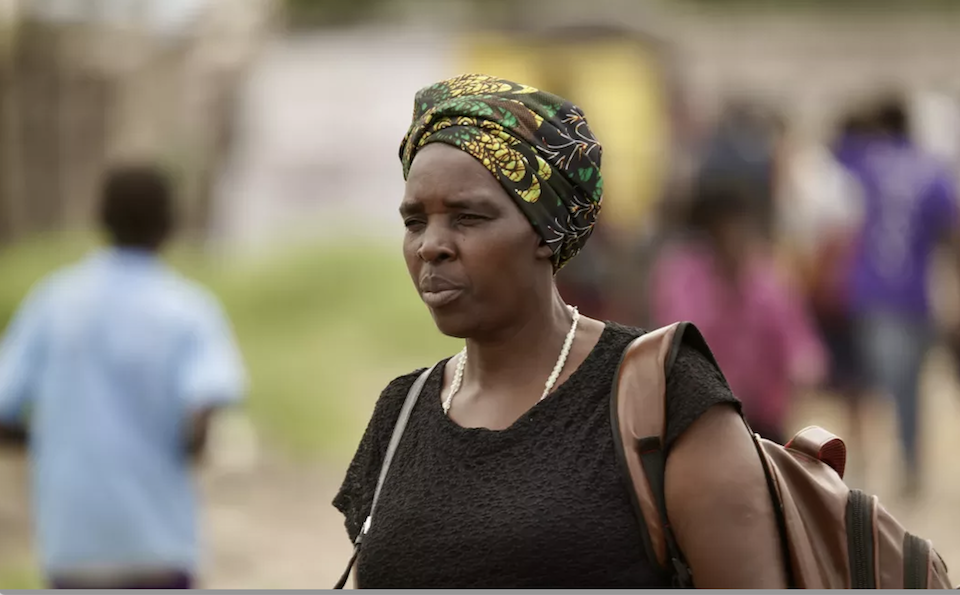
Mary and Martha’s day starts at 8 a.m. when they begin visiting families in George Compound, and ends around 4 p.m. They visit both new households to identify cases and returning families to provide ongoing support to families impacted by cholera. They visit some families as often as twice a week and have been doing so since the height of the cholera outbreak in January.
I look forward to my weekly visits with Martha and feel really encouraged by her support. — Tisauke, 93
Each visit begins with a check-in followed by a series of questions, allowing Mary and Martha to understand the current living conditions and challenges that each family is experiencing. Tisauke, 93, was diagnosed with cholera in January. “I look forward to my weekly visits with Martha and feel really encouraged by her support,” she said.
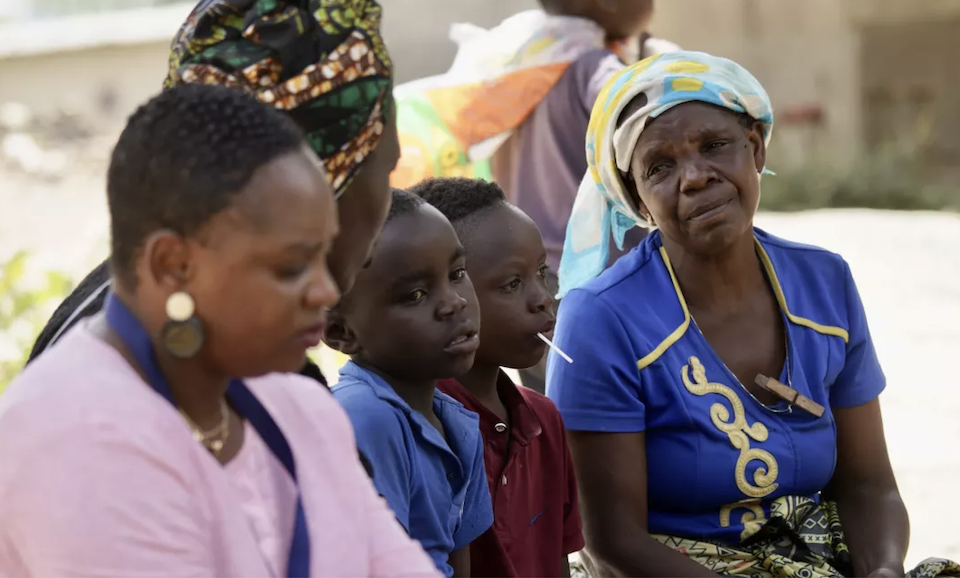
Twice a week, Mary visits Elizabeth, 60, and her nine grandchildren to help her as she continues to cope with the recent loss of both her son and daughter. Elizabeth is now the sole supporter for all of her grandkids and struggles to afford rent, school fees and food for the family. The most she can afford is one meal per day. The pain and sadness in Elizabeth’s eyes was clear as she shared, “Losing my children was devastating and I feel sad not being able to provide for my grandkids.”
Losing my children was devastating and I feel sad not being able to provide for my grandkids. — Elizabeth, 60
Mary referred Elizabeth to social protection programs like the social cash transfer so she can purchase uniforms for her grandkids, allowing them to attend the free government school nearby. When Elizabeth was depressed following the passing of her son and daughter, Mary provided psychosocial support helping her leave her house and reengage with her community.
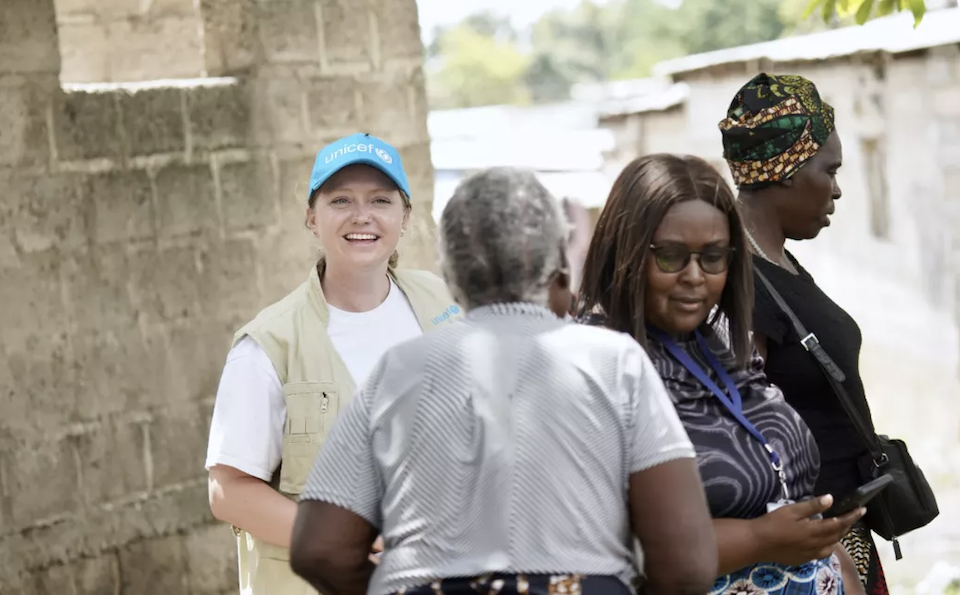
Connecting at-risk families with vital resources
Next, Mary visits two widowed sisters, Theresa and Ann, who live together and support one another. When the elder sister, Theresa, fell ill with cholera, her younger sister Ann became the sole provider and caregiver. On a typical day, the sisters might split a scone for breakfast with a sugar water solution. For dinner, they would share a small bag of mealie meal (cornmeal) to make nshima porridge. Ann has found it even more difficult to afford mealie meal as the cost of corn continues to increase due to the drought. Mary ensures the social welfare office understands the sisters' lack of food. They might be provided with in-kind support, such as food, like mealie meal, or cholera prevention materials like chlorine for water treatment.
Now it’s time for Martha to meet with Tisauke’s family, who she visits once a week. Not only does she support Tisauke, but she supports the entire family, including her grandson, 31-year-old Royd, who is now the sole provider for their family of eight after the passing of his grandfather and father. He once had a shop to sell food, but it was demolished and he doesn’t have the capital to reopen the shop. The family can only afford one meal per day. “It’s only God keeping us alive now,” said Tisauke.
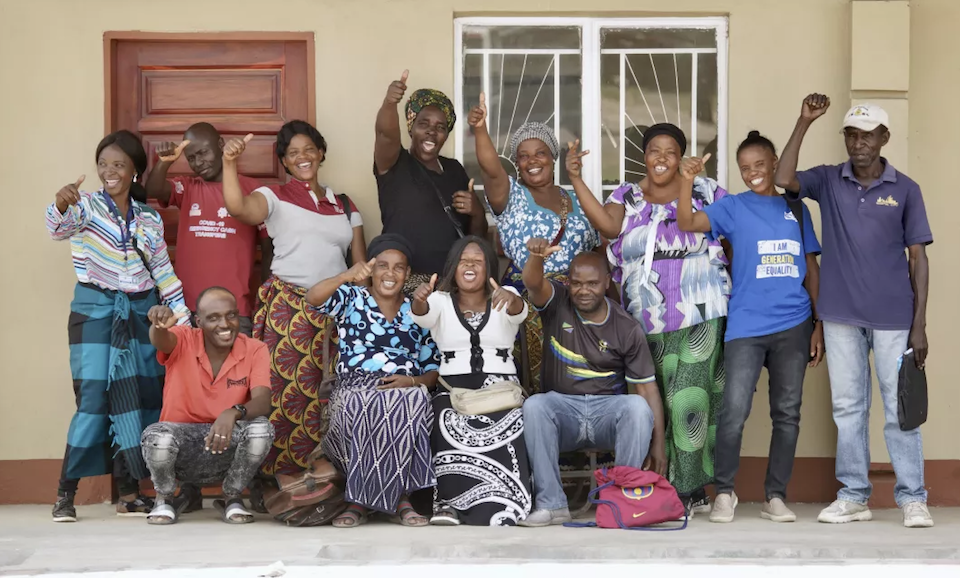
Leading with compassion and empathy, positively impacting communities one family at a time
Like other families, Royd said his family has suffered from isolation and a lack of support from the community. There's a stigma surrounding cholera that causes many people to avoid anyone with cholera, even their own extended family members. The personal support Tisauke's family receives from Martha is crucial for their well-being, both physically and mentally. Martha and the social welfare office could refer him to the community development livelihood program, which would provide him with a start-up grant or loan to reopen his shop, allowing him to have a means of income for years to come.
Leading with compassion and empathy, CWACs are positively impacting communities one family at a time. This community structure, supported by CERF and directly tied to government structures, showcases a prime example of how integrating local, community support can allow the government and partners to reach more vulnerable families in an individualized manner. When asked what he’d like to see happen next, Royd said, “I want Martha and the CWAC program to have more resources allowing them to work with additional families and expand the work they’re doing.”
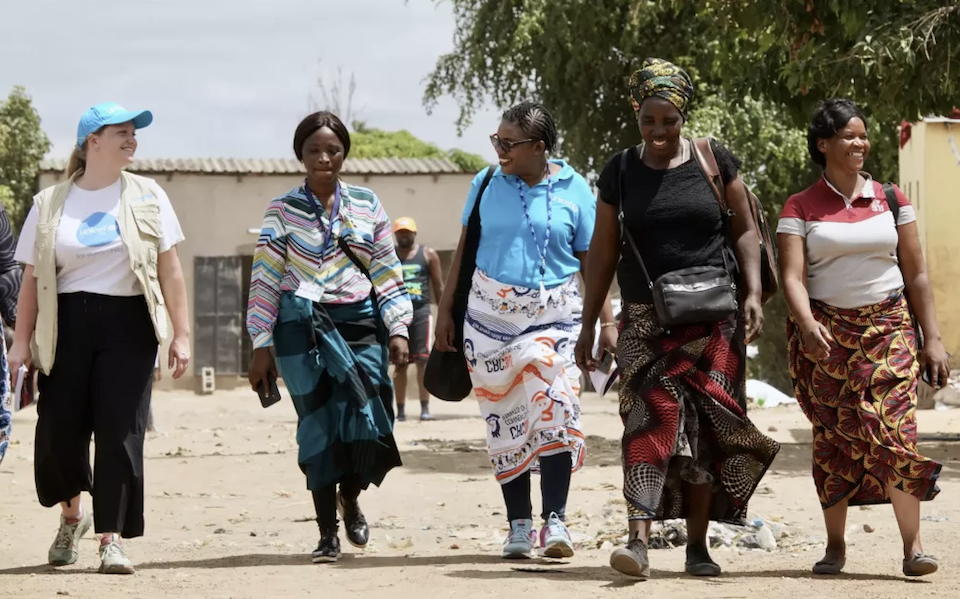
The families of Elizabeth, Tisauke and Theresa are only a few of those whose lives have been changed for the better by the generosity and support of the social welfare community-based protection response through Community Welfare Assistance Committees.
Learn more about how UNICEF is responding to the cholera crisis in Africa.
UNICEF works around the world to help children and their families. Your contribution will make a difference. Please donate.
This story was originally published on unicef.org
HOW TO HELP
There are many ways to make a difference
War, famine, poverty, natural disasters — threats to the world's children keep coming. But UNICEF won't stop working to keep children healthy and safe.
UNICEF works in over 190 countries and territories — more places than any other children's organization. UNICEF has the world's largest humanitarian warehouse and, when disaster strikes, can get supplies almost anywhere within 72 hours. Constantly innovating, always advocating for a better world for children, UNICEF works to ensure that every child can grow up healthy, educated, protected and respected.
Would you like to help give all children the opportunity to reach their full potential? There are many ways to get involved.



